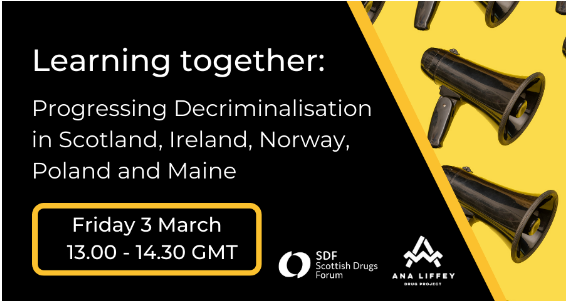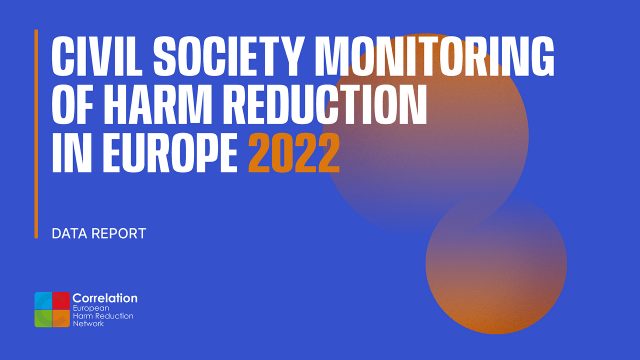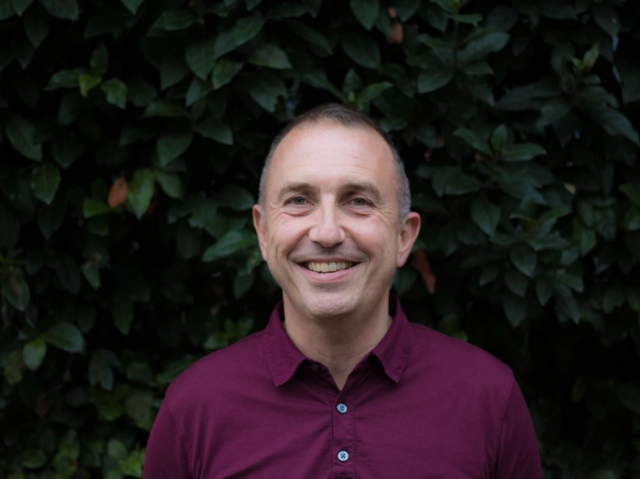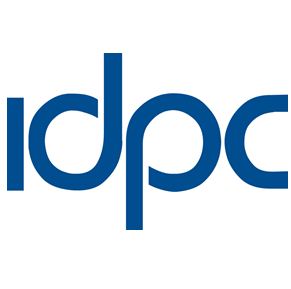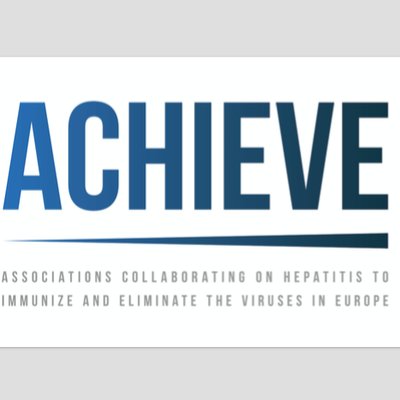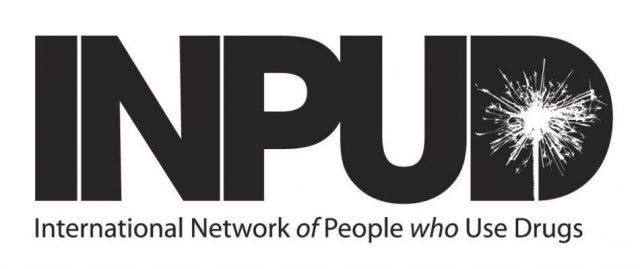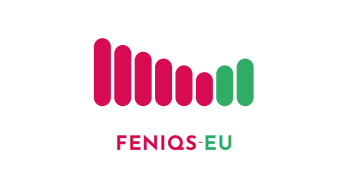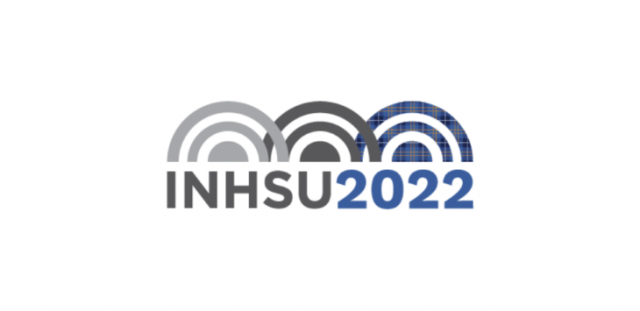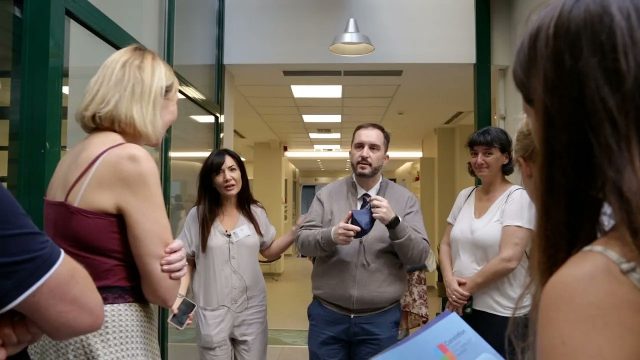WEBINAR – Learning together: Progressing Decriminalisation in Scotland, Ireland, Norway, Poland and Maine.
There has been substantial progress in the discussion and implementation of decriminalisation of drugs in the past 10 years. The issue is more broadly discussed and is more central to wider discourse around drug use and drug harms. Despite this progress, there remain barriers to ending criminalisation and preventing the consequent harms for people who use drugs and wider society.
SDF will be hosting a webinar to coincide with the publication of a new report, Working To Decriminalise People Who Use Drugs: Learning From Decriminalisation Efforts In 5 International Jurisdictions. This report has been prepared for Ana Liffey Drugs Project by the Scottish Drugs Forum with support and funding of The Open Society Foundation. The report evaluates the recent decriminalisation and advocacy efforts in Scotland, Poland, Norway, Ireland and Maine (USA). These jurisdictions were selected as they had hosted decriminalisation advocacy projects funded by Open Society Foundation (OSF).
This webinar will cover the international policy context of decriminalisation and the findings from the report. Panel members will share the learning from good practice examples from their jurisdiction. There will be an extended discussion of the challenges and learning from implementing these changes.
Chair – Tony Duffin, Ana Liffey Drug Project, Dublin, Ireland
Introduction – Matt Wilson, Open Society Foundations
Presentations:
- Brendan Hughes – European Monitoring Centre for Drugs and Drug Addiction
- Katy MacLeod – Scottish Drugs Forum
Panel discussion Chair – Dave Liddell, Scottish Drugs Forum
Panel:
- Kenneth Arctander – RIO (Norwegian Users’ Association in The Field of Alcohol and Drugs) and Norwegian Public Drug Policy Reform Committee (Norway)
- Anna Quigley – CityWide (Ireland)
- Magdalena Dąbkowska – Helsinki Foundation for Human Rights (Poland)
- Peter Krykant – Cranstoun (Scotland)
- Courtney Ross – Recovery Voices, Maine (USA)

